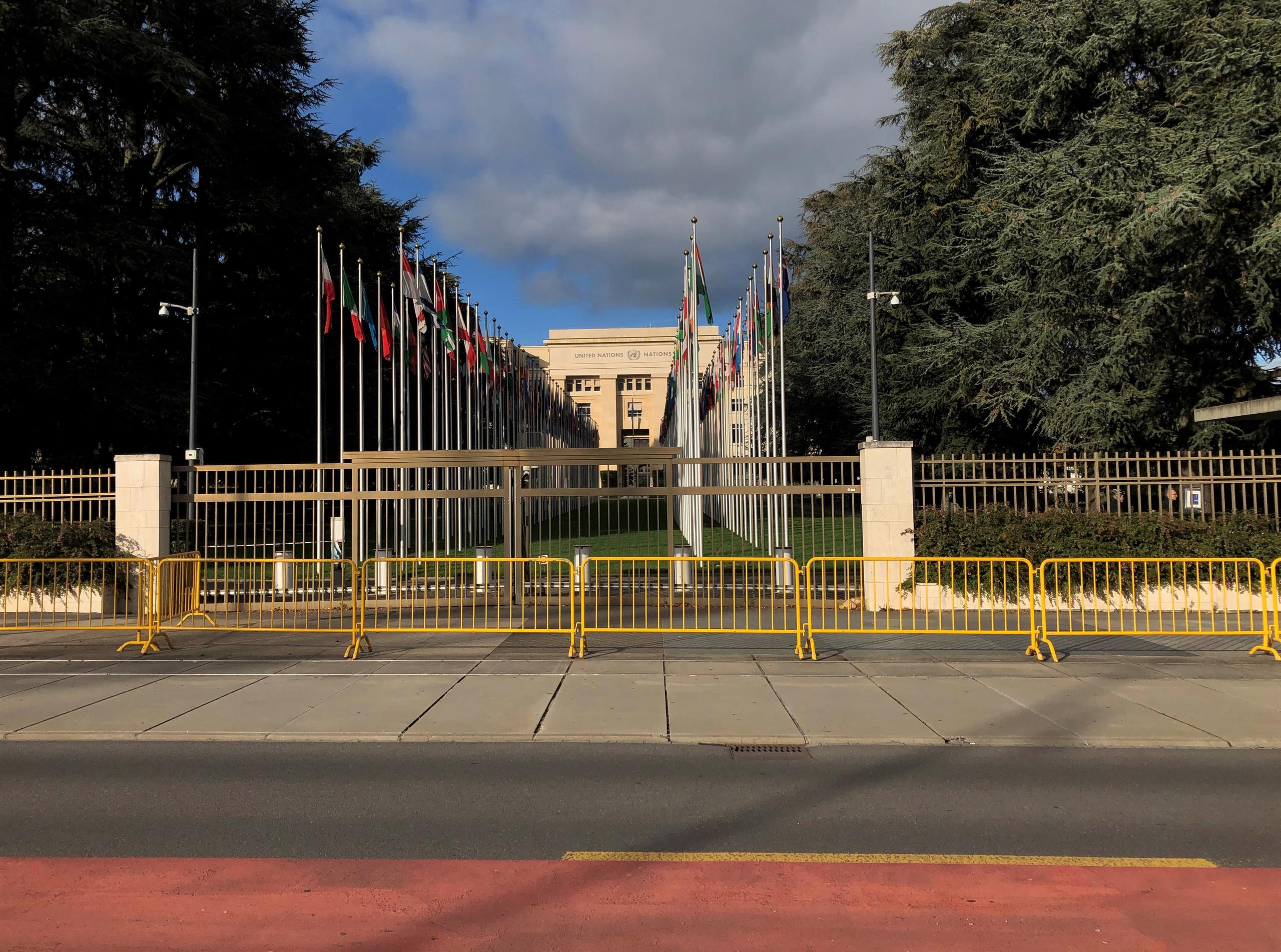
International Geneva set to breathe easier with Biden

Officials in International Geneva have been breathing a collective sigh of relief at the news that Joe Biden looks set to become the next president of the United States. But many uncertainties remain.
Over the past four years, the Trump administration’s criticism of the multilateral system and measures it has taken against the United Nations and international organisations have had a serious impact.
Under Trump, the US either de-funded, withdrew from, or publicly criticised several UN agencies and affiliated institutions, including the WHO, the UN Relief and Works Agency for Palestinian Refugees (UNRWA), the World Trade Organization (WTO), the UN Educational, Scientific and Cultural Organization (UNESCO), the UN Human Rights Council and the UN Population Fund (UNFPA). The WHO, WTO and Human Rights Council all have their headquarters in Geneva.
Attacks by Trump “hit us head on”, recently declared former Swiss President Micheline Calmy-Rey. “They made people in Geneva grimace.”
Over the past 12 months Joe Biden promised America’s return to multilateral organisations if he got elected. He has now cleared the 270-vote threshold to win the US election, setting him on course to be sworn in on January 20; Trump meanwhile still refuses to accept defeat.
Many key figures and observers in so-called International Geneva welcome the prospect of a Biden win and a US return to the multilateral system.
Working closely together?
WHO is hoping that US President-elect Joe Biden will reverse a decision by Washington to leave the organisation made by the Trump administration earlier this year.
Trump has been highly critical of WHO and over its management of the Covid-19 pandemic. In May the American president said that he was “terminating” the US relationship with the specialised UN health agency. He accused it of becoming a puppet of China during the global coronavirus crisis and of failing to make reforms to the organisation that he had demanded in a May 18 letter to WHO Director-General Tedros Adhanom Ghebreyesus.
The WHO director general has congratulated Biden and vice-president elect Kamala Harris on their victory last Sunday, saying WHO looks forward to working “very closely” with their administration.
Congratulations to President-elect @JoeBidenExternal link & Vice President-Elect @KamalaHarrisExternal link! My @WHOExternal link colleagues and I look forward to working with you and your teams. Crises like the #COVID19External link pandemic show the importance of global solidarity in protecting lives and livelihoods. Together!
— Tedros Adhanom Ghebreyesus (@DrTedros) November 8, 2020External link
Biden, for his part, has promised to halt the US withdrawal from the UN health agency when he enters office.
“This is good news for WHO,” said Geneva-based global health expert Ilona Kickbusch reacting to the news that Biden also plans to establish a coronavirus task force.
Support human rights
There are pressures on the president elect to also re-join the Geneva-based UN Human Rights Council. The US pulled out of the council in June 2018, calling it “hypocritical and self-serving” with chronic bias against Israel and lacking reform.
“This [US] election is an important signal,” Gerald Staberock, secretary general of the World Organisation against Torture (OMCT), told the Keystone-SDA news agency. “We hope the new president will keep his word and give his country a strong role to end torture around the world.”
Staberock said he hopes the new US administration will also give more support to human rights activists and that Washington continues to put pressure on China for its human rights violations.
The impact of this election is “huge” for International Geneva, he declared. The US withdrawal from the Human Rights Council has caused “huge damage” and sent an “icy message to Geneva’s multilateral structures”, he added.
Staberock hopes the US quickly recommits to the Geneva-based council, which he says would help reduce the influence of states with poor human rights records.
The United Nations meanwhile continues to struggle with a major financial crisis that threatens its operations.
According to an article by the Inter Press Service on November 5External link, the UN continues to face a “liquidity crisis” triggered by late or non-payment of assessed contributions by 61 member states—amounting to a $5.1 billion shortfall — which threatens to undermine both the mandate and world-wide operations of the global organisation.
As of 4 November 2020, only 133 Member States (out of 193), have paid their regular budget assessments in full, according to the latest UN figures.External link
“Clouds gather over the multilateral organisation,” wrote Stéphane Bussard in the Le Temps newspaper this week. “The European headquarters of the UN will not emerge unscathed.”

In compliance with the JTI standards
More: SWI swissinfo.ch certified by the Journalism Trust Initiative


























You can find an overview of ongoing debates with our journalists here . Please join us!
If you want to start a conversation about a topic raised in this article or want to report factual errors, email us at english@swissinfo.ch.